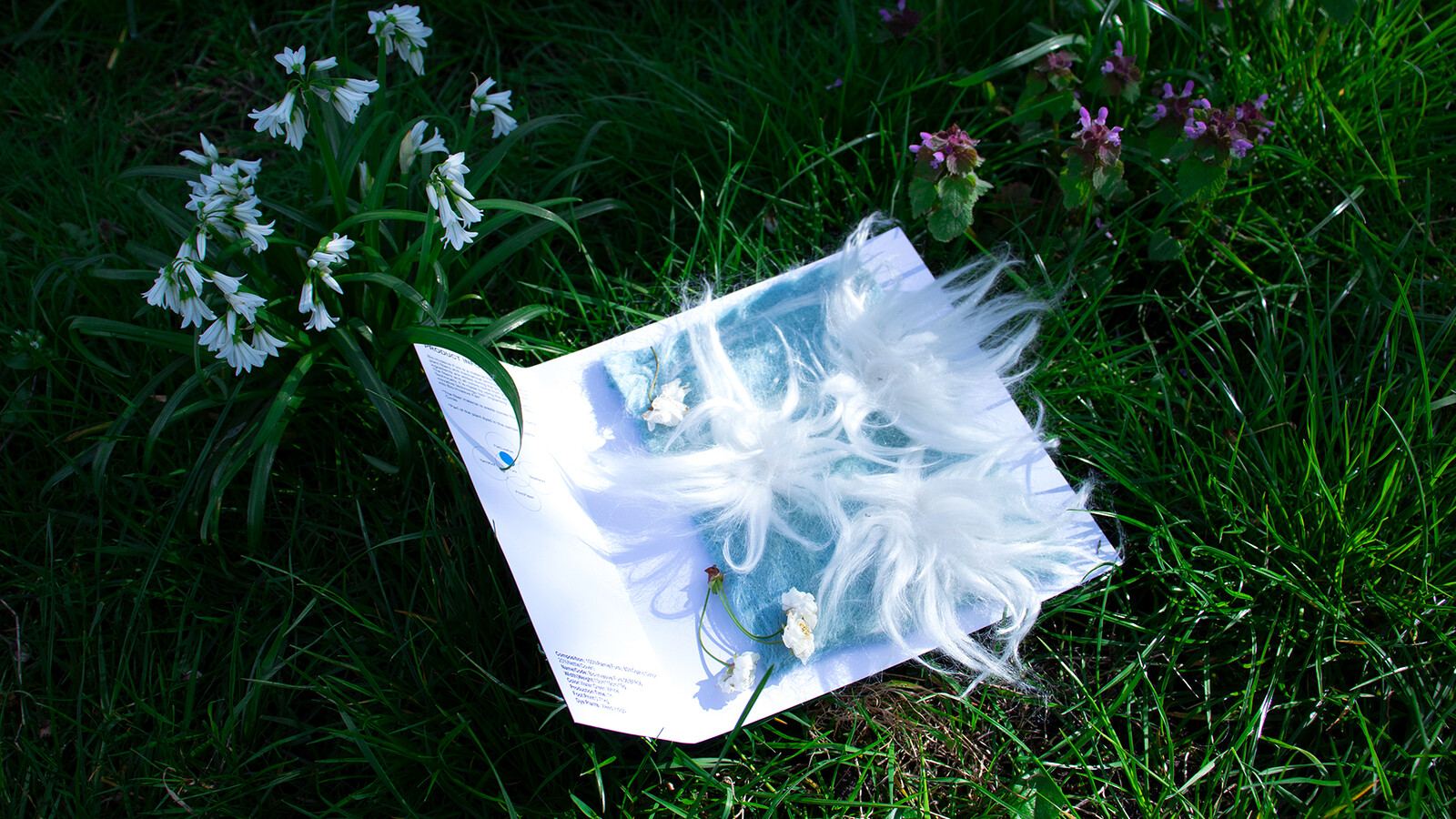Jewellery, Textiles and Materials programme
Application deadline: April 3, 2024, 1pm
Granary Building, 1 Granary Square
King’s Cross
N1C 4AA London
England
Applications for 2024/5 entry are open for MA Biodesign, MA Material Futures and our fully-online postgraduate course, MA Regenerative Design.
Application deadline: April 3, 2024 at 1pm (UK time).
At the heart of the Jewellery, Textiles and Materials programme at Central Saint Martins is material investigation in the broadest sense, ranging from open-ended design speculation to hands-on craftmanship. We value material knowledge as transformational across our courses.
Alongside our ethos of radical materiality and intricate making, we are committed to decolonising our curriculum, diversifying our shared learning resources, prioritising representation and developing planet-positive design strategies. We evoke curiosity and provoke change. We actively empower our students and staff to share our strong sense of accountability for climate and biodiversity emergency, economy and social justice.
MA Biodesign
MA Biodesign explores bio-informed design strategies as a driver for sustainable innovation. The course incorporates the inherent life-conducive principles of biological living systems into the design process.
Biodesign is an emerging discipline. Despite a growing number of publications and exhibitions, there is no universal definition of biodesign as such. Other terminologies exist, such as biophilic design, bio-integrated design, biomimetic design and bio-informed design. While they vary in definition, they all relate to a similar principle: that we can learn from nature to create more sustainable ways of living. The MA Biodesign at Central Saint Martins specifically understands biodesign as a means to incorporate the inherent life-conducive principles of biological living systems into design processes – to transition into a more holistic, sustainable future.
In 2021, MA Biodesign students collaborated with Maison/0 to answer the question: how can biodesign propose new concepts at the service of nature for the luxury sector? Results span from lipstick made using microalgae to bio-sequins created from the particles filtered from the waste water of the dyeing process, shown in the images above. Read more about the project.
MA Regenerative Design
Sustainability is not enough: MA Regenerative Design goes further, helping you to develop your creative practice for a more-than-human world. The course is online and “ultra-local”. You will be embedded within your home biosphere and community to develop a locally specific regenerative design project.
In the context of a fast-accelerating climate and biodiversity emergency, sustainable design is not enough. To date, the integration of environmental considerations in the design process has largely focused on more efficient use of natural resources or the reduction of our environmental impact. Regenerative design goes further to restore and replenish what human activities have radically deteriorated.
Regenerative design is a rising discipline that incorporates principles of deep ecology and living system thinking and a fundamental understanding of planetary health to develop new design propositions that can help empower communities and restore our biodiversity and climate. Instead of perpetuating an anthropocentric mindset which leads to the depletion of our underlying life-support systems, regenerative design goes beyond sustainable and circular design principles to actively promote a multi-species approach in which humans and non-humans co-habit holistically.
MA Material Futures
Material Futures is where science, technology and design collide. We not only imagine a better future, but aim to actively change it today.
Through trans-disciplinary practice and collaboration you will explore how we will live in the future. By working with experts, taking risks and blurring the boundaries between design, science and technology, our students look beyond existing disciplines, anticipating the future needs, desires and challenges that we face in the 21st Century.
We believe that only by observing and analysing how we live today we can begin to explore how we might occupy tomorrow. Considering the current and future context of design decisions is key to our ethos. We will encourage you to combine social, scientific, political, environmental, ecological and economic inquiry. These insights will help inform future design scenarios, material propositions and research-led speculations.
Extended photo credit
Xue Chen, Bio-invasive Textile Library (2023): The Bio-Invasive Textile Library project presents a win-win solution that harmonises the ecology and fashion worlds. It harnesses invasive plants and fashion technology innovations to establish a sustainable ecosystem,addressing both biodiversity loss and ethical treatment of animals. Focusing on London’s invasive plants, the project utilises them as raw materials for fibers and dyes, while mapping their distribution to aid invasive plant management and biodiversity conservation. Read more on UAL Showcase.

